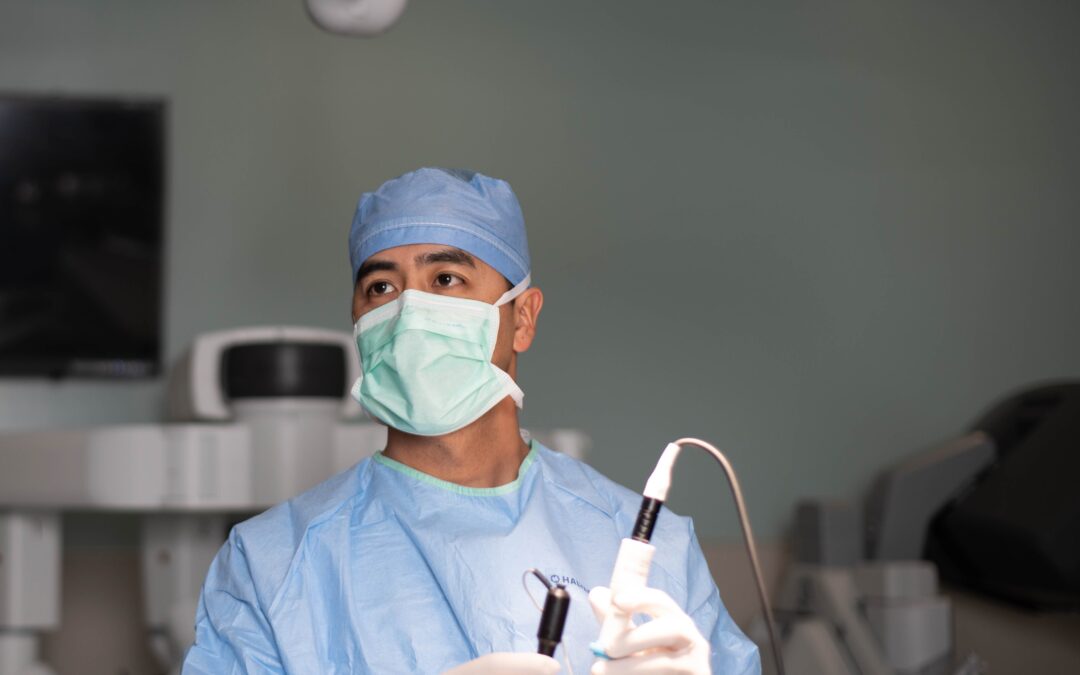July is Fibroid Awareness Month, a crucial time dedicated to raising awareness about uterine fibroids, a common yet often overlooked health issue affecting millions of women worldwide.
What are uterine fibroids?
Uterine fibroids are non-cancerous growths in or on the uterus. They can vary in size, from tiny, undetectable lumps to large masses that can distort the uterus. While fibroids are benign, they can cause significant discomfort and complications for many women.
Who is at risk?
Fibroids are incredibly common, with research suggesting that up to 80% of women will develop them by the age of 50. However, the likelihood of developing fibroids increases with certain risk factors:
- Age: Women between 30 and 50 are most affected.
- Family history: Women with a family history of fibroids are more likely to develop them.
- Ethnicity: African American women are more likely to develop fibroids and may experience more severe symptoms.
- Hormonal factors: Estrogen and progesterone, hormones that stimulate the development of the uterine lining during each menstrual cycle, can affect the growth of fibroids.
What are the symptoms to watch for?
Many women with fibroids do not experience symptoms and may only discover them during a routine pelvic exam. However, for those who do have symptoms, they can range from mild to severe and include:
- Heavy, prolonged, and/or painful menstrual periods
- Abdominal and pelvic pain or pressure
- Difficulty urinating
- Constipation
- Backache or leg pains
- Pain during intercourse
Why does awareness matter?
Fibroids can significantly impact a woman’s quality of life. Heavy bleeding can lead to anemia, while pain and pressure can affect daily activities and overall well-being. Increased awareness helps women recognize symptoms early and seek appropriate medical advice and treatment.
Diagnosis and Treatment Options
Diagnosing fibroids typically involves a pelvic exam, ultrasound, or other imaging techniques like MRI. Treatment options vary based on the fibroids’ size, number, and location, the severity of symptoms, and the patient’s desire for future pregnancies.
Treatment options include:
Medications: Hormonal therapies can help manage symptoms but will not eliminate fibroids.
Lifestyle remedies: While medical treatments are essential, lifestyle changes can also help manage symptoms and improve overall health:
- Healthy diet: Eating a balanced diet of fruits, vegetables, and whole grains can help manage fibroid symptoms.
- Regular exercise: Physical activity can help alleviate some symptoms and improve overall well-being.
- Stress management: Techniques like yoga, meditation, and deep breathing can help manage stress, which can sometimes exacerbate symptoms.
Minimally invasive procedures:
- Laparoscopic radiofrequency ablation – Commonly known as fibroid ablation, this procedure works by applying controlled heat directly into the fibroid, causing it to shrink over time.
- Laparoscopic or robotic myomectomies – Fibroid removal for women with symptomatic fibroids who want to save their uterus for future fertility.
- Laparoscopic or robotic hysterectomies – For definitive management of fibroids, we can perform laparoscopic or robotic hysterectomies (removal of the uterus). Women who undergo this procedure will no longer have menstrual bleeding or be able to become pregnant.
Early detection and treatment can significantly improve the quality of life for those affected by uterine fibroids. If you or someone you know is experiencing symptoms related to fibroids, seek medical advice. At Erlanger, we are committed to providing comprehensive care and support for women with this condition. Together, we can raise awareness and improve the health and well-being of women in our community.
Dr. Mitch Dizon specializes in Minimally Invasive Gynecologic Surgery (MIGS) at Erlanger Women’s Health. He believes in excellence in care for women with chronic pain conditions and the need for advanced gynecologic surgery. To schedule an appointment, call 423-778-MIGS (6447).








